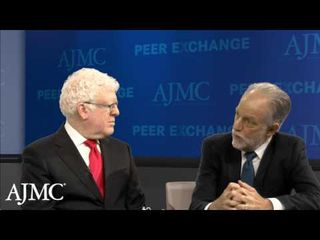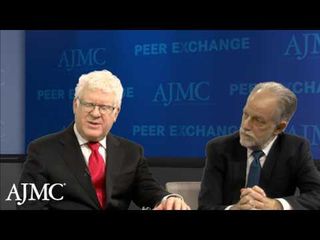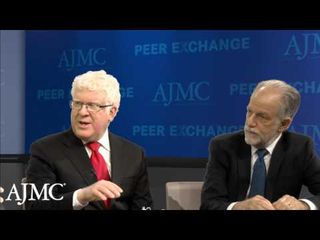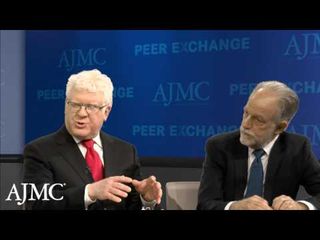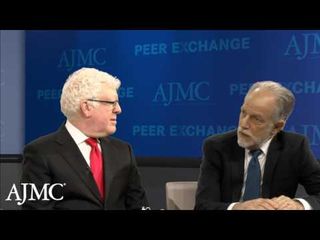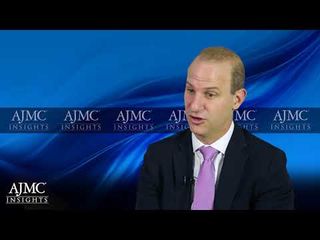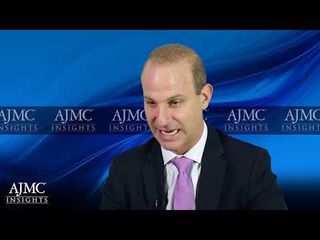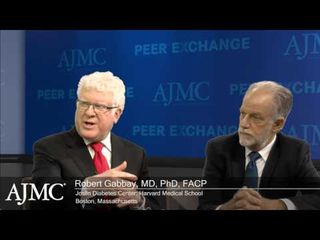
Insurance
Latest News

Latest Videos

CME Content
More News

More than half of risk-based accountable care organizations (ACOs) currently enrolled in the Medicare Shared Savings Program said they are likely to drop out due to the fear of paying losses resulting from the coronavirus disease 2019 (COVID-19) pandemic, according to a survey conducted by The National Association of Accountable Care Organizations.

Benefits newly available under Medicare Advantage are not well-known to consumers and uptake has been limited. At the same time, CMS has propsed funding the hospice benefit differently, which would allow MA plans to “carve in” to this benefit, creating additional uncertainty.
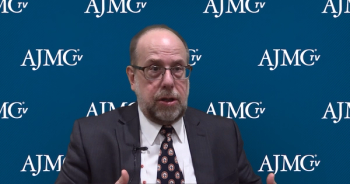
Age and severe comorbidities were among the differences found when real-world data on Medicare patients receiving CAR T-cell therapy was compared to clinical trial outcomes, said Karl Kilgore, PhD, senior research analyst at Avalere Health.
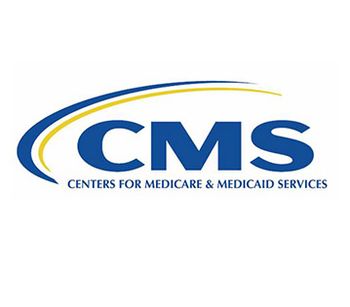
The rate increase comes as the agency is easing up on quality reporting requirements to give health sytems breathing room amid the pandemic. Monday’s announcement also clarified some payment changes for end-stage renal disease.

Analysis of spending differences among accountable care organizations (ACOs) may help identify cost savings opportunities. We examined the magnitude and sources of spending variation among ACOs over 4 years.

The changes are aimed at helping hospitals increase their capacities for the sickest patients; expand the pool of local healthcare providers who are available to work; eliminating ordinary paperwork and documentation requirements; expanding Medicare coverage for respiratory-related devices and equipment for any medical reason; and expanding telehealth in Medicare by covering more than 80 additional services.

The Patient-Driven Payment Model addresses perverse incentives in Medicare’s previous payment system for skilled nursing facilities, but it includes new incentives that may be problematic.

The bill includes $100 billion for hospitals; some are concerned that the bill, the Coronavirus Aid, Relief, and Economic Security (CARES) Act, does not go far enough, particularly for Medicaid.
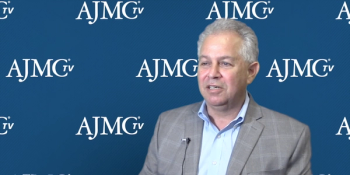
Sharing records and encouraging conversation will promote better collaboration between primary care and cancer care, said Jeffrey Lowenkron, MD, chief medical officer of The Villages Health.

Several challenges arise when using real-world data derived from claims to study the impacts of CAR T-cell therapy on Medicare patients, said Karl Kilgore, PhD, senior research analyst at Avalere Health.

The temporary relaxation and expansion of CMS' telehealth rules, which allows the use of methods like FaceTime and Skype, is aimed at protecting both older patients and their providers from COVID-19, which has led to curfews, shuttered schools, deserted Main Streets, and ravaged financial markets.

If you have a primary care relationship, there is at least one health care provider who does know you: your primary care physician (PCP). Yet in the turmoil of admission and the danger of discharge, it has often been likely that the only physician on earth who knows you and your health would never know that you spent 3 days in the hospital. That is, until you recovered and told the person.

Out-of-pocket costs required by Medicare prescription drug plans for drugs available through Walmart’s generic drug discount program have decreased from 2009 to 2017.

Today CMS announced the Part D Senior Savings Model, allowing Medicare Part D prescription drug plans to offer plan choices that provide a range of insulins to beneficiaries, at a maximum $35 copay per 30-day supply throughout the benefit year.

In comments on the CY 2021 Advance Notice, AMGA noted its concerns with the methodology for setting payment rates for patients with end stage renal disease (ESRD), who as of 2021 will have the option of enrolling in MA.

Nonadherence to essential chronic medications and mental health diagnosis were associated with higher hospitalizations and emergency department use among Medicare super-utilizers.

Implementing alternative payment models in oncology is a complicated process. The models are not perfect, especially the Centers for Medicare and Medicaid Services’ Oncology Care Model (OCM), although several panelists saw improvements in the proposed successor model, Oncology Care First (OCF).

How well patients say they are faring, both during and after cancer treatment, is more important than ever to payers. But measuring that feedback isn’t easy, and ensuring that measurement is fair to both patients and providers is harder still.

Medicare patients' health care utilization, including hospitalizations and emergency department visits, decreased after CAR T-cell therapy, said Karl Kilgore, PhD, senior research analyst at Avalere Health.

While there are similarities to the Oncology Care Model, the new model has features “that could have a substantial impact on practices that choose to participate,” the authors write.

Out-of-network primary care may be associated with higher per-beneficiary spending in Medicare accountable care organizations (ACOs), reported a recent study published in Health Affairs.

A vascular surgeon in Florida allegedly stole $26 million from insurers and the government; a new report finds many rural areas are still at risk of an HIV outbreak; new disposable flavored vape pens have largely replaced Juul use among teens.

A federal watchdog will take on Medicare scams; Belviq, a weight loss drug, has been pulled from market; issues at Veterans Affairs have resulted in healthcare roadblocks.

Real-world discontinuation of hepatitis C drugs was low, but it was 3 times more likely than in clinical trials and varied by patient characteristics.

The evolution of data in healthcare in combination with policy advancements demonstrates how far the field has come but also brings up new challenges.


